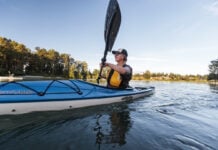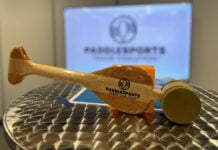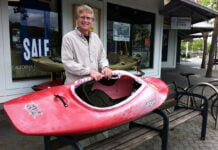With 891,163 square kilometers of freshwater covering the country, Canadians have many options when it comes to deciding where to kayak. Yet despite the sizeable number of paddling destinations, not everyone has the same ability to participate in kayaking. Shoulder injuries, disabilities and the aches and pains of getting older prevent many from realizing the physical and mental health benefits of paddling.
Two organizations are working together to change all that by making specialized kayak paddles and equipment available to Canadians who might not normally be able to kayak. Angle Oar LLC, a US-based company that manufactures adaptive kayaking equipment, and Abilities in Motion, a Canadian-based non-profit organization that promotes inclusive paddling, have joined together to bring the equipment to Canada.
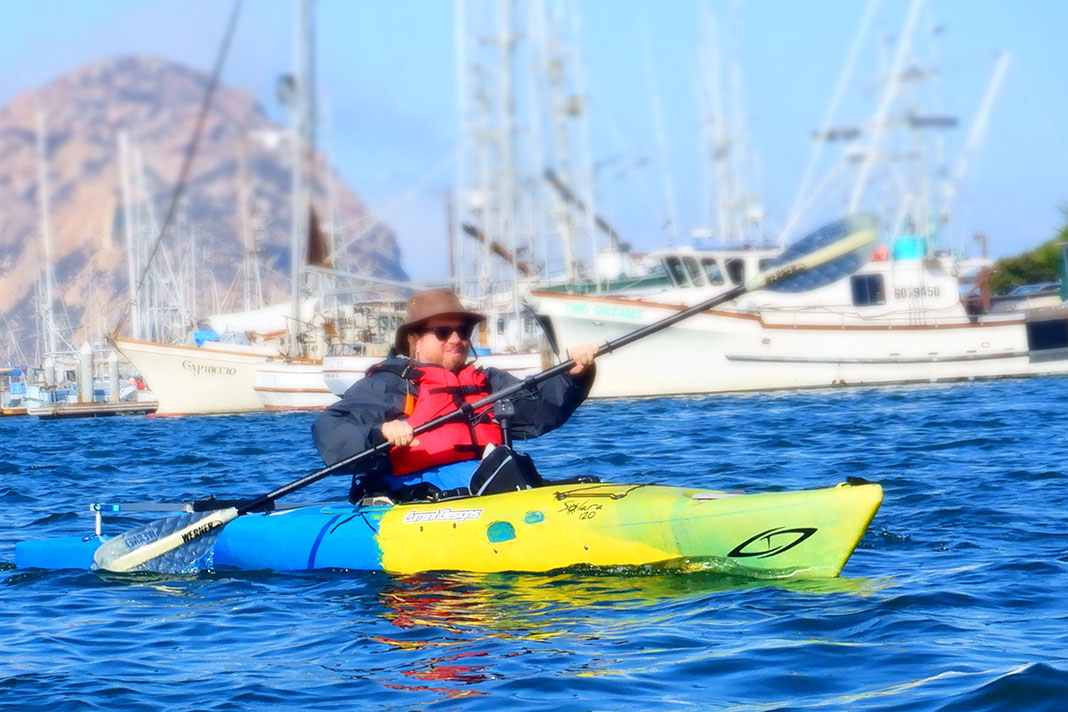
The availability of adaptive kayaking, or universal kayaking as it is sometimes called, has been steadily growing in both Canada and the US. By making small adjustments to the kayak, the paddle and/or the related accessories, many people with strength or mobility limitations can kayak independently.
“We’ve had countless customers with significant paralysis due to a stroke or spinal cord injury find that they could kayak with our mount-supported paddling systems,” notes Meg McCall, Founder & CEO of Angle Oar. “For many, it was their first time out of a wheelchair and moving independently in years. It’s been life changing.”
Adaptations range from extra paddling to support someone’s torso, outriggers for added stability, wrist grips for people unable to grasp the blade, and mounted kayak paddles which require less strength to paddle.
Angle Oar’s paddling systems use mounts that attach to the kayak and support the weight of the paddle, reducing stress on the shoulders, back and joints. The company has a patented paddle, Versa, that angles downwards on each side, requiring a smaller range of motion from the paddler. It can also be used straight, like a traditional paddle. The company’s customers include people with disabilities, experienced paddlers who’ve had rotator cuff surgery, adaptive paddling programs, and kayak retail and rental shops.
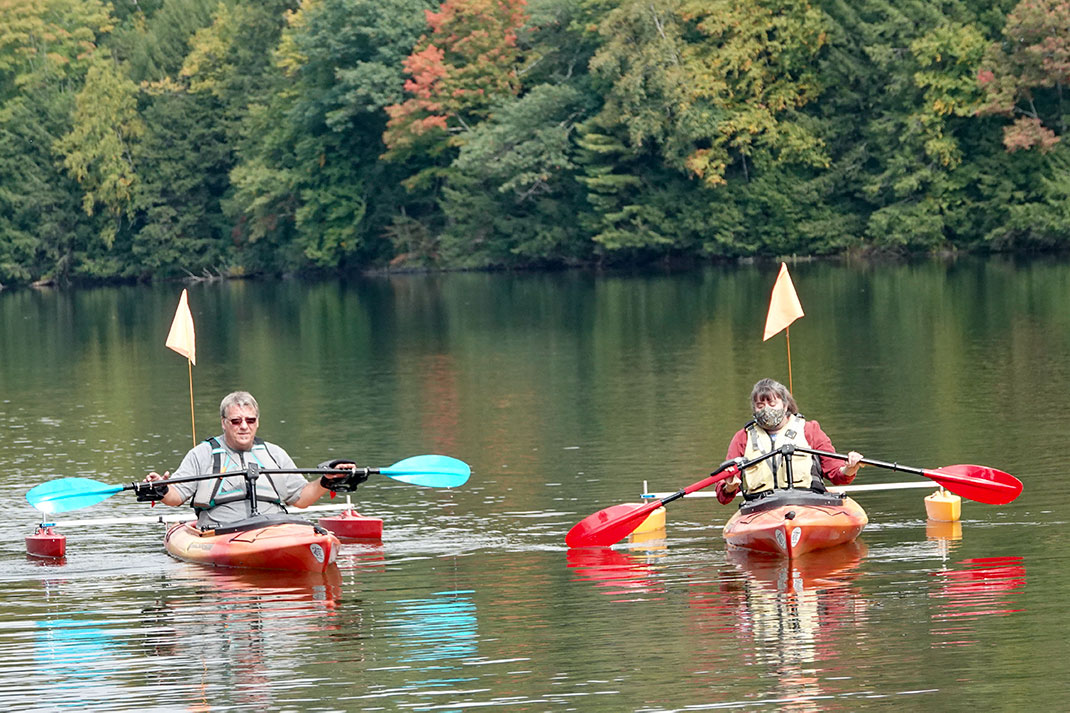
“We’ve been offering adaptations and making kayaking accessible in Ontario and beyond for more than a decade. We were aware of Angle Oar’s innovative paddling products for some time, but we didn’t have a good solution for overcoming the significant shipping costs,” says Pauline Halstead, Executive Director of Abilities in Motion (AIM). “After a lot of research and some creative brainstorming, Meg and I figured out a way to bring them into Canada in a way that was more affordable to consumers.”
Halstead, who has been a pioneer in Canada’s adaptive paddling movement, was recently appointed as chairperson of the newly created Adaptive Paddling Committee at Paddle Canada.
The need for adaptive paddling resources in Canada is clear. More than 5.3 million Canadians live with some form of disability that affects their level of freedom, independence or quality of life, according to Statistics Canada. An estimated 2.7 million of them have a mobility disability that limits their daily activities. In addition, roughly 6 million Canadians have arthritis, and shoulder pain is on of the most common musculoskeletal complaints among Canadian adults, according to one study.
Canadians interested in purchasing adaptive kayaking equipment can visit the Abilities in Motion website at abilitiesinmotion.ca for details on how to take advantage of the discounted pricing available through this new collaboration. They can also visit the AIM site to learn more about the upcoming paddling event in August, Hands Across the Water, which raises funds to support people with disabilities.
——-
Meg McCall, Founder & CEO
Angle Oar LLC
meg@angleoar.com
(805) 439-3056



